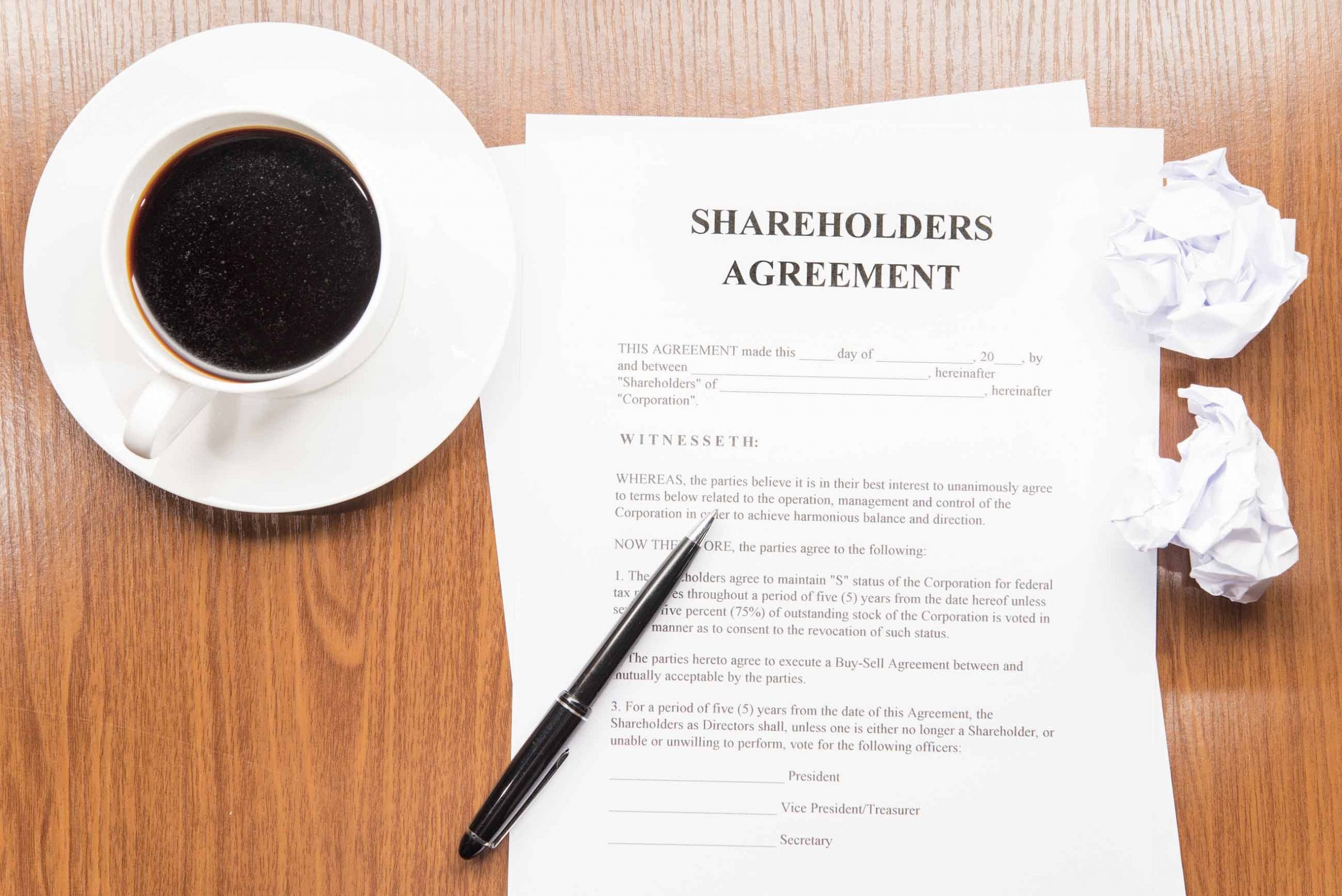If you are involved in a company with more than one shareholder, a shareholders agreement is recommended. Certain key aspects of the governance of the company can be dealt with through company constitutions and the Companies Act itself provides a number of measures relating to governance. There are however matters which as between the parties have been agreed but because of their private nature are not incorporated in constitutions which are public documents. Shareholders agreements are not mandatory but can be a helpful way of heading off disputes and avoiding arguments as to what has been agreed.
Here we go over five main reasons a shareholders agreement can add value.
1. Certainty
A shareholders agreement allows each company shareholder to have consistent, clear and concise information about their responsibilities, whether they be financial or otherwise. During the instruction and drafting process you will be after range of questions that address various contingencies that might arise in the course of the operation of the company some of which you may not have considered turned your minds to. The best time to reach agreement on a particular point is before a dispute arises.
2. Handling disputes
Legal disputes are bound to occur within the lifespan of any company, but shareholders agreements put into place systems to deal with them swiftly and efficiently. As an example, the agreement might state that a pre-arranged third-party mediator is to be brought in to advise on disputes, or even make executive decisions to resolve disagreements in everyone’s best interest.
3. Tag along /drag along
Circumstances may arise where the opportunity arises where a majority shareholder wishes to sell to a third party. Shareholder agreements often include what is known as tag along drag along clauses where the majority shareholder is required to include the minority shareholder in the sale and where the minority shareholder is required to participate.
4. Role descriptions
Often there will be disparate contributions to the business enterprise. You may have a sleeping partner who contribute capital but is not involved in the day-to-day business. You may have one shareholder who is in charge of administration and another on the tools. Shareholders agreements provide an opportunity to define roles and mechanisms for addressing remuneration based on services contributed over and above profit distribution.
5. Employee participation in shareholding
Companies often wish to secure a long-term commitment from key employees by allowing them to become shareholders on defined terms. That can include funding initial share acquisition, relating shareholding to continued employment and providing a process and share price-fixing formula for exiting the company.
Need help drawing up an agreement?
The four reasons above are a good example is of the types of matters included in shareholders agreements. Protecting your interests and those of the other parties involved in your company in a fair manner is important. If you need to draw up a shareholders agreement, it’s best to get an expert in commercial law involved. Contact Gillespie Young Watson today – we have the experience to set up your business the right way.



